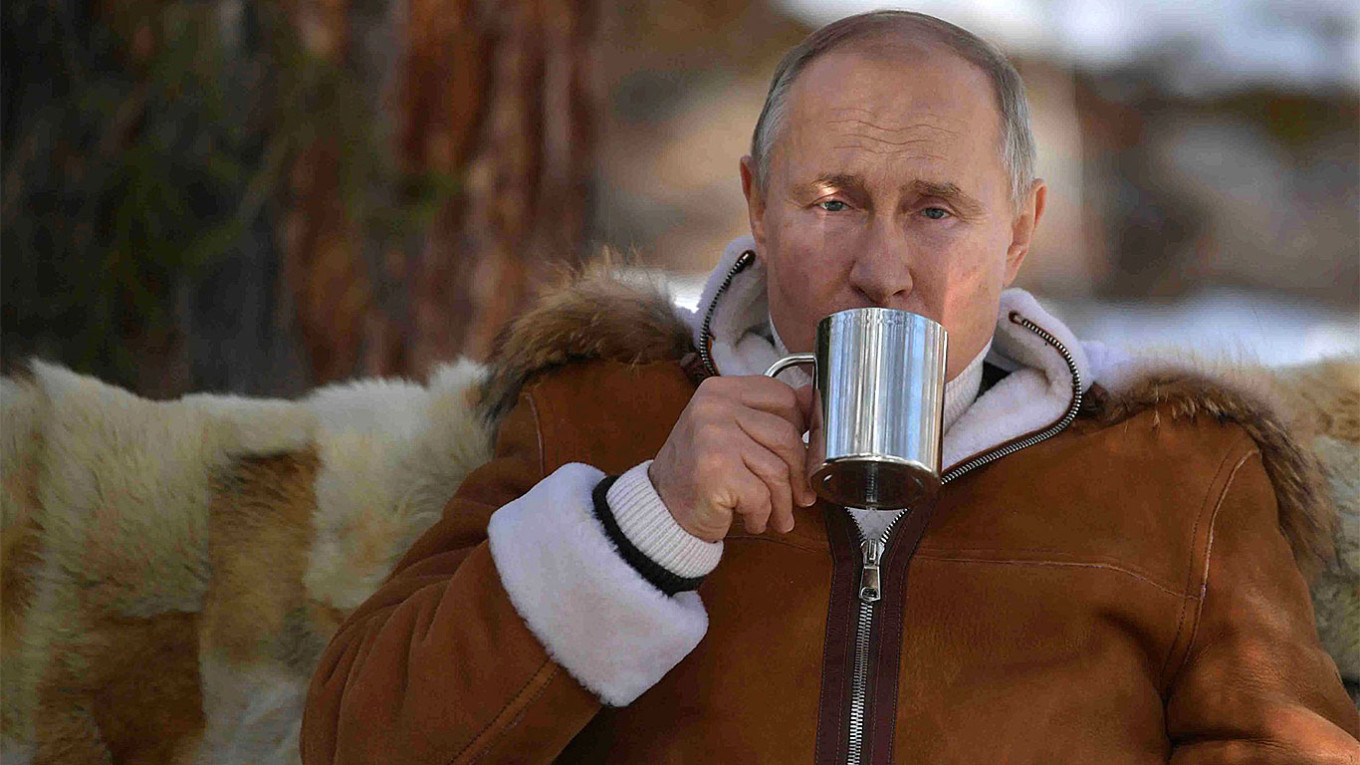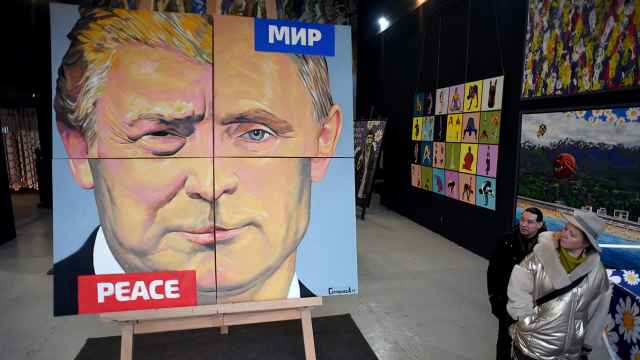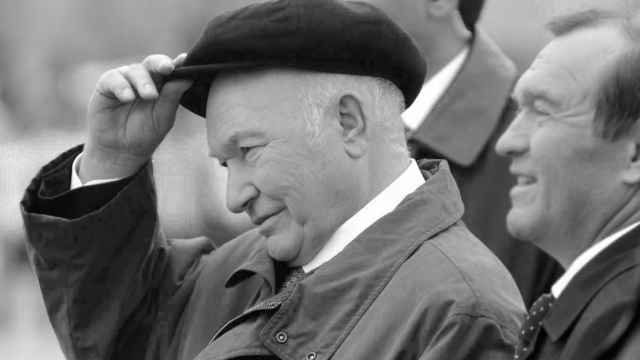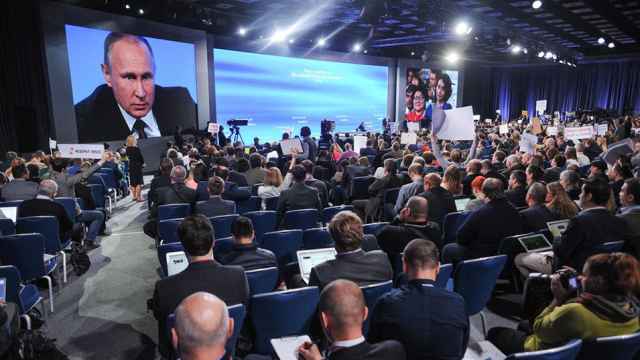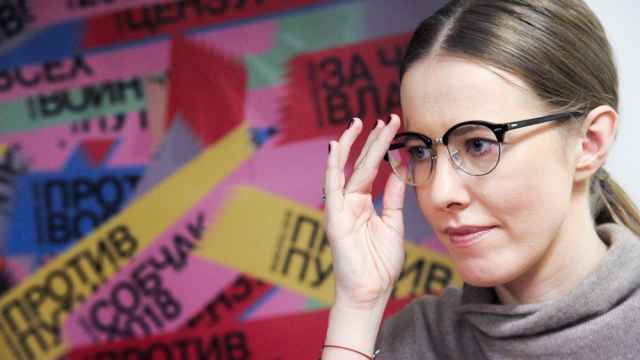Russian President Vladimir Putin has one message that he likes to convey in his public speeches: that he is very much a man of the people, with the blood of simple Russian folk running through his veins. His idea of the people, however, has changed more than once during his lengthy reign and is changing once again right now.
The people he chooses to meet in public and his own behavior show that for the president, the Russian people are currently embodied by somewhat marginal figures elevated by the war, such as the Donbas separatists, mercenaries, and a certain kind of self-proclaimed war correspondent. All the Russian authorities can do is adapt to the president’s version of reality and adopt his marginal style.
Putin loves to remind people of his humble origins. At the recent Valdai forum, he talked about his father ("a tradesman who went to technical college") and his mother ("she didn’t even finish high school") and implied that he was very familiar with “what makes ordinary people tick."
Putin constantly underlines his proximity to the common people through the vocabulary he employs, using slang and even parts of speech suggestive of expletives at Valdai.
Officially, he was speaking to the international relations experts assembled at the forum, but judging by his speech and manner of delivery, he was in fact setting out his message to the masses: the parts of society that symbolize the fabled “Putin majority."
Right now, that’s the Donbas separatists, some so-called war correspondents, private military contractors and Chechen battalions fighting in Ukraine, and soldiers, including those who were recently mobilized. Putin likes people who have been in the trenches and know what gunpowder smells like—or who at least have been close to the action.
The president’s new idea of ordinary folk stems directly from Russia’s invasion of Ukraine. Putin has waxed lyrical over the Donbas separatists who he said were “fighting for their homeland on the front line,” and the self-proclaimed journalists who style themselves as war correspondents and “report” from the frontline wearing bulletproof vests.
The president is known to have met with these “war correspondents” on at least two occasions. Securing an audience with Putin since the start of the Covid pandemic has been no mean feat, even for very influential representatives of Russian politics and business, yet Russia’s leader apparently can find the time for this motley crew.
Their role is obvious. A propagandist in uniform, even an audacious daredevil type, is not a true soldier, and will not, therefore, harass the president with complaints about the real hardships of war, never mind criticize the president’s decision to start that war.
The “war correspondents” will slam the generals, talk about their mistakes, and suggest taking tougher action: broadening mobilization, and stepping up the bombing campaign against Ukrainian cities. This point of view is close to Putin’s heart: it is not he who is at fault, but the generals, and the war is necessary, it’s just that some mistakes must be rectified.
One figure who has taken root in the president’s inner circle is Yevgeny Prigozhin, founder of the infamous private military company Wagner, who also hails from the masses and has a checkered past. It’s difficult to say whether or not he personally has access to Putin, but what is certain is that he can get away with criticizing the Defense Ministry without any consequences.
In recent months, Prigozhin has publicly admitted after years of rumors that he did indeed found Wagner; he makes jokes and uses curse words when commenting to the media; and he has been openly visiting Russia’s prisons, recruiting convicts for the armed forces.
Likewise, the notorious Chechen leader Ramzan Kadyrov, long known for his controversial statements and actions, has also taken it upon himself to represent the “common people” via his social media channels, including by posting smutty humorous videos.
Such is the new surrogate for the Russian people in Putin’s eyes. The Russian leader has already changed his mind several times about how the “majority” looks, and every time, officials in the presidential administration built a new backdrop to correspond to the president’s changing image.
In the early 2010s, the “people” consisted of the All-Russian People’s Front: an organization made up of state employees and pro-regime activists. This was the Putin majority constructed for the president by Vyacheslav Volodin, who was then in charge of the Kremlin’s domestic policy.
A few years later, the president’s understanding of his electorate changed slightly. The aging leader took a shine to young careerists, such as those who took part in contests for state professionals. Events with these “ordinary people” were accordingly set up by Volodin’s successor, Sergei Kiriyenko.
Kiriyenko has proven to be very flexible. While he may be more at home organizing competitions for careerists, he is also capable of throwing on military fatigues, and becoming just as militant as Kadyrov, Prigozhin, and their ilk. He demonstrated this during a forum at the end of October when he explained that Russia would win the war in every sense — including the “psychological information war” — but for that to happen, the war had to truly become a “people’s war” in which every Russian would “feel their involvement.”
The kind of people being invited to the Kremlin these days have long since felt involved, and are actively demonstrating that: both to Putin and to everyone else. And in all likelihood, the president truly believes that the residents of the Potemkin villages fashioned by his staff are indeed “the people.”
Now the head of state has started borrowing certain traits from those he believes represent the people. In his speeches, he increasingly imitates the cocky manner of Prigozhin, for example, combining it with cliches about the decaying West. The president’s immersion in the “masses” is becoming dangerous.
His vocabulary and behavior are growing marginalized, and the communication style of other high-ranking officials will inevitably become marginalized too. After all, they had no qualms about repeating Putin’s less-than-intelligible word “denazification” or discussing the fight against fascism. They will have no problem adopting his vulgar tone.
A Message from The Moscow Times:
Dear readers,
We are facing unprecedented challenges. Russia's Prosecutor General's Office has designated The Moscow Times as an "undesirable" organization, criminalizing our work and putting our staff at risk of prosecution. This follows our earlier unjust labeling as a "foreign agent."
These actions are direct attempts to silence independent journalism in Russia. The authorities claim our work "discredits the decisions of the Russian leadership." We see things differently: we strive to provide accurate, unbiased reporting on Russia.
We, the journalists of The Moscow Times, refuse to be silenced. But to continue our work, we need your help.
Your support, no matter how small, makes a world of difference. If you can, please support us monthly starting from just $2. It's quick to set up, and every contribution makes a significant impact.
By supporting The Moscow Times, you're defending open, independent journalism in the face of repression. Thank you for standing with us.
Remind me later.



